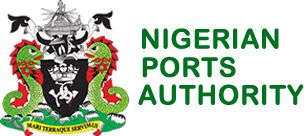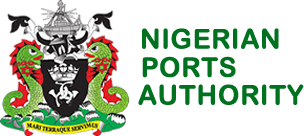REMARKS BY HADIZA BALA USMAN, MANAGING DIRECTOR, NIGERIAN PORTS AUTHORITY AT THE QUARTERLY MEETING OF NIGERIAN PORTS CONSULTATIVE COUNCIL ON AUGUST 15, 2019.
Protocols
It is with great joy that I welcome you all to this quarterly meeting of the Nigerian Ports Consultative Council. The PCC has over the years, grown to become an invaluable partner to the Nigerian Ports Authority in the determination of the federal government to position Nigerian ports as the hub in the sub-region.
These quarterly meetings have themselves proven to be a veritable platform for robust stakeholder engagements aimed at proffering solutions to the challenges impeding our ports from becoming “The leading Port in Africa”, as we envision and I daresay that the collaborations that the PCC and this forum engender Is one of the reasons can say we are on the right path. With its existence as old as the oldest port in Nigeria, I must congratulate PCC for sustaining the culture of holding quarterly meetings where issues that bother on improving the maritime sector are brought to the front burner all these years. I also want to assure of the NPA’s continuous support and collaboration in this regard.
As we all know, there are so many challenges that the maritime sector and the ports business in Nigeria currently faces and we have continued to re-affirm our commitment to tackling each of these issues sustainably.
For example, the issues of Port Infrastructure, Maritime Security, Port access roads and Multimodal Transportation of cargo are all germane to optimizing the comparative advantage that our rich maritime endowments confer. Indeed, actualizing the overriding objectives of the Federal Government’s Economic Recovery and Growth Plan (ERGP) depends largely on how quickly we can correct the inherent deficits in our port infrastructure especially the ports access roads.
Aside going beyond our mandate in 2017 to partner with AG Dangote and Flour Mills by providing 1.8 Billion naira of the funds required to fix Wharf road in an effort geared towards easing the gridlock at Apapa, we have embarked on a number of initiatives to sustainably tackle the national menace that the traffic gridlock has become.
Realizing that we needed to put in place a more aggressive plan to hold the trucks, whose indiscriminate conduct serves to compound the problem, we have recently converted the Lilypond Container Terminal into a holding bay for trucks. We are following up this aggressive plan with an innovative move of automating the call up system for trucks gaining access into the ports for cargo evacuation and removal. The impact of this call up system is yet to be fully appreciated because of the work we are currently carrying out to protect the shorelines at the Tin Can Port.
We also recently signed a memorandum of understanding (MoU) with AP Moller Capital on how to explore the inland waterways for the movement of cargo. This is tied to our licensing of companies to evacuate containers to the Ikorodu Lighter Terminal, but this current arrangement will extend the use of barges to evacuate containers from the ports beyond Ikorodu to Epe and Ijegun. We are also relentless in our resolve to partner with stakeholders like the Lagos and Ogun State governments as well as private sector operators to license private parks trucks that will service the ports.
We are not oblivious of arguments that attribute the congestion in Lagos to the inactivity in other ports and would like to inform this gathering that we are investing heavily in improving service delivery in the outer ports as evidenced by the dredging of the channel to Warri, purchase and deployment of tug boats to improve efficiency as well as collaborations with the Nigerian Maritime Administration and Safety Agency( NIMASA) and the Nigerian Navy to checkmate issues of insecurity which also constitute a disincentive to customers’ patronage of the eastern ports. It is however pertinent to remind all stakeholder that maritime business globally vests the choice of port to use exclusively on the customer and a variety of reasons governs how these decisions are made. The NPA is nevertheless doing its best to encourage the use of the eastern ports, which was why we recently introduced some discounts as incentives to port users
We are also at the forefront of all ongoing discussions both locally and globally between government and the private sector aimed at taking greater advantage of the inland waterways and rail network to enhance seamless port hinterland connectivity.
I am persuaded that as we explore the potential of multi modal means of transportation of goods and cargo from our ports, we would reduce vehicular traffic, and the traffic gridlock around the ports will become history even as our roads will become more durable. The chaotic situation that we currently deal with is a result of the failure of the past and we must all commit ourselves to ensuring that these errors are never committed again.
We are of course convinced of the fact that the NPA can never achieve all these goals by itself. Aside from the fact that the effectiveness of port operation is a multi-agency venture that requires all hands to be on deck, we also realise that we have so many partners with whom we must be in accord within our own immediate environment. We are of course conscious of these and are doing all we can to see that we work in concert. A case in point is the area of full deployment of scanners in cargo inspection to speed up the transaction turnaround time in our ports to stem customer dissatisfaction and disaffection. We must continue to talk and work together to improve the rating of our ports.
That is the idea behind today’s event, it is the idea behind the quarterly meeting that we hold with stakeholders and our decision to make the doors of the NPA open to all stakeholders. Of course, this does not mean sleep on our rights as a government agency. This is the reason behind the current review of some of our very important agreements such that every party would have what is fair to them and treat other stakeholders fairly. It is only in such an atmosphere that our industry can grow, and the country can reap its utmost benefit.
We must rise from this meeting with a united resolve to eliminate all obstacles whether bureaucratic or otherwise standing in the way of full deployment of technology in cargo inspection and clearance. We should also speak as one voice concerning the need for all parties involved in steps that would aid the decongestion of the ports and access roads to come together and play their roles.
I thank you so much for listening and pray that God bless indeed.




